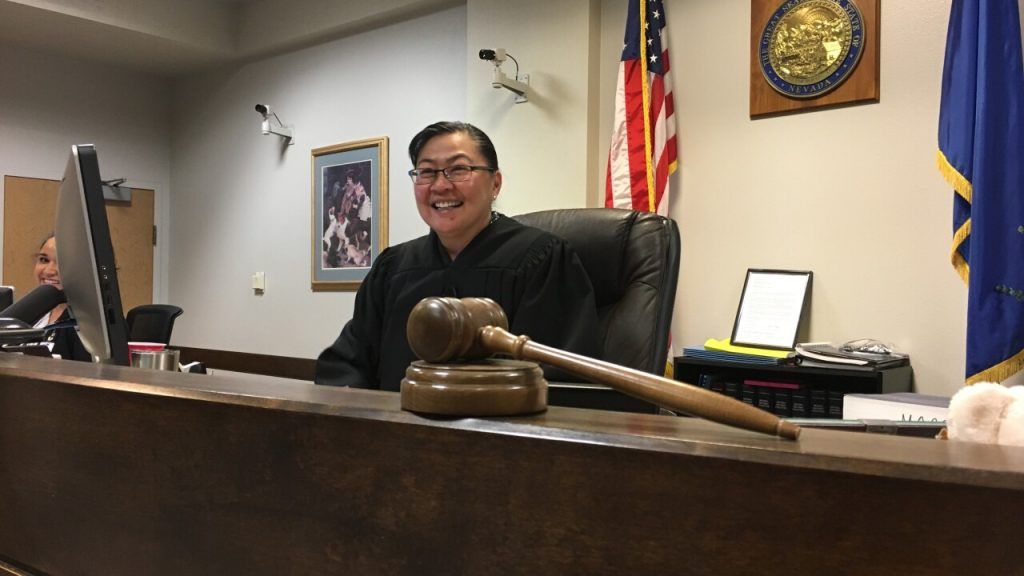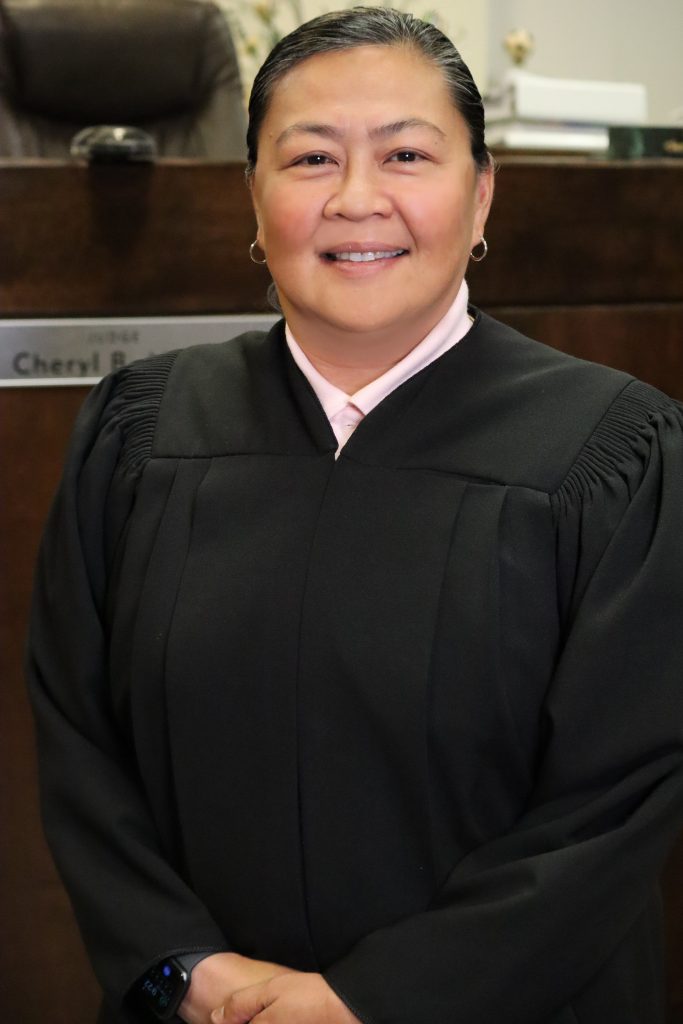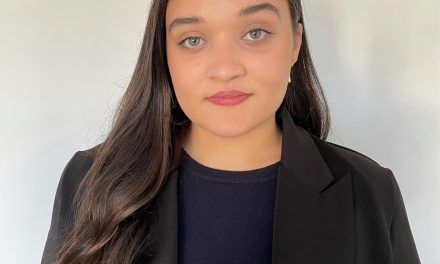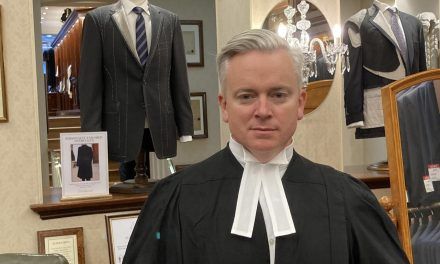When I first took the bench in 2001, I envisioned addressing problem gambling in divorce and custody cases. My late mother, Dr. Rena M. Nora, who was Chief of Psychiatry at the Las Vegas Veterans Administration Medical Center, advocated for the treatment of gamblers going back to the days when she met Dr. Robert L. Custer, widely known as the founding father and first pioneer in the treatment of compulsive gamblers.
In 1980, the American Psychiatric Association formally recognised compulsive gambling as a psychiatric disorder. In 1987, Dr. Custer opened the first treatment centre for gamblers at Charter Hospital in Las Vegas. In 1994, my mother relocated from New Jersey to Las Vegas to start a gambling treatment program for military veterans at the VA hospital.
Naturally, my interests in problem gambling were largely due to my mother’s compassionate efforts to help gamblers. She persuaded me to leave my budding career as a young lawyer in Washington, DC, to leave during a judicial clerkship at DC Superior Court and move to Las Vegas.
Fast forward to 2001—during my first year as a jurist—I collaborated with the Nevada Council on Problem Gambling to create a gambling assessment tool to evaluate a litigant’s risk for problem gambling. The gambling assessment has been utilised by family court judges over the years.
Family judges are typically not aware of a person’s gambling habits until it is raised in the courtroom. When gambling becomes an issue, then a gambling assessment may be appropriate to shed light on whether parents are not caring appropriately for their children, are potentially neglecting their children, or a spouse is committing marital waste for purposes of allocating marital assets and debts in a divorce case.
Gambling assessments in domestic relations cases serve two purposes. The first purpose is to alert the court if parents pose a risk to their child. A certified problem gambling counsellor (CPGC) will assist the court in recommending the gambler for treatment and financial monitoring.
The second purpose is to provide information to the judge if a person’s gambling addiction was a contributing factor to the dissipation of community property. The great debate is whether the gambling addiction mitigates a community waste issue due to the person being unable to control their gambling (problem gambling diagnosis), or whether the gambling behaviour was intentional, such that it harmed the marital community to the extent that a court would impose an unequal distribution to the innocent spouse.

In criminal law, Assembly Bill 102 was enacted into law on Thursday 1 October 2009, codified in Nevada Revised Statute (NRS) Chapter 458A. The statute authorises the criminal court to determine if an individual is eligible for diversion treatment due to gambling addiction. The judge must make findings that a person committed a felonious crime, and that the crime was committed in furtherance of their gambling addiction. Further, the judge must determine ‘whether or not the person should receive treatment under the supervision of a qualified mental health professional’.
If all requirements under the statute have been met, then the defendant may elect to receive treatment in lieu of incarceration. The defendant’s case is then transferred to the Gambling Treatment Diversion Court (GTDC). In addition to treatment and court monitoring, the defendant must also pay restitution. Restitution payments are an integral part of recovery for an individual with a gambling addiction.
It would take a 1,000 pages to write about the consequences of a person suffering from a gambling addiction. Failed marriages, lying and stealing to feed their addiction and the total loss of control over their lives. A gambling disorder does not discriminate; it affects all persons from various socioeconomic statuses, from celebrities, professionals, casino employees, and persons as young as adolescents to retired senior citizens.
Since NRS Chapter 458A became law, it took nearly 10 years for Nevada to establish its first GTDC. As a sitting judge for the past 19 years, I had never given up hope that one day a gambling court would be established. On one fortuitous day, Chief Judge Linda Bell asked me if I would preside over the gambling court. Of course, I accepted with enthusiasm and confidence.
We hit the ground running. A specialty court coordinator was assigned to the new court, Michael Lea, MFT. Mr. Lea assisted with creating forms and a gambler’s contract. The court computer system was updated to accept GTDC cases. Meetings were conducted on short notice. On Friday 30 November 2018, I heard my first two cases.
Finally, Nevada had its first-ever gambling diversion court. Nevada is the gaming capital of the world. It makes absolute sense to have a gambling court. When legislation was passed to provide for gambling treatment in criminal cases, the salutary policies behind the law were to help people with gambling addictions, to rehabilitate them, to repay their victims, and to save taxpayers the costs of having them incarcerated at a rate of approximately $24,000.00 annually.
I submit that persons who go through GTDC will always be in lifetime recovery, just as with any other persons who are in recovery from other addictions. No matter how small or large the amount of the money that was gambled away, one must understand that this often does not register in a gambler’s cognitive thinking processes when they are deep into their addiction. Getting them into treatment and recovery benefits the individual and the community.
In late 2022, Nevada’s gambling treatment court will celebrate its fourth anniversary. Over a dozen participants have gone through the programme, a large majority have graduated, and there were only two re-arrests resulting in termination from the programme to which the defendant was returned to incarceration to finish out his or her sentence.
Nevada’s GTDC will lead the way and be the model court for problem gambling diversion. Other states have already shown interest and are asking about the GTDC. Nevada has finally made a statement in the gaming community. People are talking about it and the world is listening.
To learn more about Gambling Courts visit www.gamblingcourts.us and read the latest published article in the University of Nevada Las Vegas Gaming Law Journal: https://scholars.law.unlv.edu/glj/vol12/iss2/4/

Retired Judge Cheryl Moss served on the bench for 20 years. In addition to her judicial duties, Judge Moss has volunteered her time to serve as a member of the Subcommittee on Legal Issues, created by the Governor’s Advisory Committee on Problem Gambling. Prior to taking the bench, she was in solo private practice. Judge Moss is a member of the Nevada District Judges Association, the International Masters of Gaming Law, the Clark County Bar Association, and previously served on the Board of Trustees of the Clark County Law Library.



